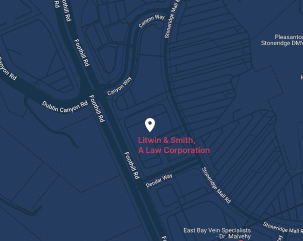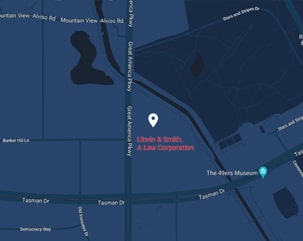LitwinLaw Newsletter – 6/1/07
June 1, 2007
Headlines:
- 1. DOL Publishes Final Labor Certification Rule, Prohibits Substitutions; USCIS Terminates Premium Processing for I-140s Requesting Substitutions – The regulation’s provisions apply to permanent labor certification applications and approved certifications filed under both the Program Electronic Review Management (PERM) program regulation and previous regulations.
- 2. DOL Releases PERM Labor Certification FAQ – The Department of Labor released the Tenth Round of Frequently Asked Questions on PERM labor certification.
- 3. USCIS Issues Final Rule Increasing Fees – USCIS has issued a final rule that drastically increases fees for many immigration benefits.
- 4. USCIS Announces H-1B Cap Receipting Time Frames– USCIS provided projections for fee receipting and data entry processing for H-1B cap cases currently at the Service Centers.
- 5. Lawsuit Threats Discourage Foreign Investment, Top Executives Say – Several CEOs of foreign companies invested in the U.S. said that litigation is a disincentive to conduct business here.
- 6. U.S. Consulate in Toronto Announces Minimum Two-Day Wait for Passports – All stateside visa applicants and those with urgent travel plans now have to wait a minimum of two business days for return of their passports if their visas have been approved.
Also in this issue:
1. DOL Publishes Final Labor Certification Rule, Prohibits Substitutions; USCIS Terminates Premium Processing for I-140s Requesting Substitutions
The Department of Labor (DOL) published a final rule, effective July 16, 2007, to “enhance program integrity and reduce the incentives and opportunities for fraud and abuse related to the permanent employment of aliens in the United States.” The provisions apply to permanent labor certification applications and approved certifications filed under both the Program Electronic Review Management (PERM) program regulation, effective March 28, 2005, and previous regulations implementing the permanent labor certification program.
In general, the DOL rebutted commenters’ concerns about a wide variety of issues, such as increased costs and the loss of priority dates resulting from the new prohibition on substitution of beneficiaries, by maintaining that the benefits of the new provisions to the labor market and in preventing fraud outweigh the concerns of individual employers.
Meanwhile, U.S. Citizenship and Immigration Services (USCIS) announced that beginning on Friday, May 18, 2007, Premium Processing Service is no longer available for Immigrant Petition for Alien Worker (Form I-140) petitions that request labor certification substitution. USCIS anticipates a substantial increase in the number of petitioning employers that will file I-140 petitions requesting Premium Processing Service and seeking labor certification substitution before July 16, 2007. The volume of such petitions is expected to exceed USCIS’ capacity to provide the service according to the program guidelines.
The rule’s major provisions include:
A prohibition on the substitution of beneficiaries. This prohibition will apply to all pending permanent labor certification applications and to approved permanent labor certifications. The prohibition does not affect substitutions approved by the DOL or Department of Homeland Security (DHS) before the effective date. It also does not affect substitution requests in progress as of the rule’s effective date. The final rule also prohibits the sale, barter, and purchase of labor certification applications and approved labor certifications.
A 180-day validity period for approved labor certifications. Employers will have 180 calendar days within which to file an approved permanent labor certification in support of an I-140. All permanent labor certifications approved on or after the effective date will expire 180 calendar days after certification, unless filed before expiration in support of a Form I-140 petition with DHS. Likewise, all certifications approved before the final rule’s effective date will expire 180 calendar days after the effective date unless filed in support of a Form I-140 petition with DHS before the expiration date.
A requirement that employers pay the costs of labor certification, including preparing, filing, and obtaining certification. The beneficiary may pay attorneys’ fees for representation of the beneficiary or other “legitimate” costs incurred by him or her, but an employer’s transfer to the beneficiary of the employer’s costs incurred is strictly prohibited. Prohibited payments include, but are not limited to, employer fees for hiring the beneficiary; receipt of part of the beneficiary’s pay, whether through a payroll deduction or otherwise, as reimbursement; reducing the beneficiary’s pay for purposes of reimbursement or pre-payment; goods and services or other wage or employment concessions; kickbacks, bribes or tributes; receipt of payment from beneficiaries, attorneys, or agents for allowing a permanent labor certification application to be filed on behalf of the employer; or the payment by the beneficiary of the employer’s attorneys’ fees.
The establishment of procedures for debarment from the permanent labor certification program. The DOL may debar an employer, attorney or agent for up to three years based on certain enumerated actions such as fraud, willful provision of false statements, or a pattern or practice of noncompliance with PERM requirements, regardless of whether the labor certification application involved was filed under the previous or current regulation. The rule extends from 90 to 180 days the period during which the DOL may suspend processing of applications under criminal investigation. The rule adds an intent requirement (“willful”) to the false information section; to be actionable, the employer must willfully provide false or inaccurate information to the DOL. The rule expands the existing provision for a right to review the DOL’s denial of an application or revocation of a certification, to encompass a right to review of a debarment action. The request for review would be made to, and in appropriate cases a concomitant hearing would be held by, the Board of Alien Labor Certification Appeals (BALCA).
Clarification of the DOL’s “no modifications” policy for applications filed on or after March 28, 2005, under the PERM process. The rule finalizes with minor changes a provision in the proposed rule prohibiting modifications to permanent labor certification applications once such applications are filed with the DOL.
The final rule includes details on issues raised by public comment and the DOL’s resolution of those issues, the DOL’s cost-benefit analysis, and statistics on small businesses’ use of labor certification. USCIS’s new procedures under the final rule are available at http://www.uscis.gov/files/pressrelease/…. USCIS’s press release announcing termination of Premium Processing Service is at http://www.uscis.gov/files/pressrelease/….
2. DOL Releases PERM Labor Certification FAQ
On May 10, 2007, the Department of Labor released the Tenth Round of Frequently Asked Questions on PERM labor certification. The FAQ includes information on notices of filing, advertisement content, and types of evidence in response to audit requests. See http://www.foreignlaborcert.doleta.gov/pdf/….
3. USCIS Issues Final Rule Increasing Fees
U.S. Citizenship and Immigration Services (USCIS) has issued a final rule, effective 60 days from the May 30, 2007, publication date in the Federal Register, that, for the most part, drastically increases fees for many immigration benefits. USCIS said that without these fee adjustments, the agency would not be able to maintain critical business functions, properly address fraud and national security issues, and process incoming applications and petitions in a timely manner. The rule also expands the proposed fee waiver policy to include additional classes of applicants and petitioners who may apply for a waiver of certain application and petition fees for certain services.
Selected specific increases include:
- Petition for a Nonimmigrant Worker (Form I-129): Fee increased from $190 to $320
- Application for Travel Document (Form I-131): Fee increased from $170 to $305
- Immigrant Petition for Alien Worker (Form I-140): Fee increased from $195 to $475
- Application to Register Permanent Residence or Adjust Status (Form I-485): Fee increased from $325 to $930
- Immigrant Petition by Alien Entrepreneur: Fee increased from $480 to $1,435
- Application to Extend/Change Nonimmigrant Status: Fee increased from $200 to $300
- Application for Waiver of the Foreign Residence Requirement: Fee increased from $265 to $545
- Application for Status as a Temporary Resident (Form I-687): Fee increased from $255 to $710
- Application to Adjust Status from Temporary to Permanent Resident (Form I-698): Fee increased from $180 to $1,370
- Application for Employment Authorization (Form I-765): Fee increased from $180 to $340
- Biometric Services: Fee increased from $70 to $80
4. USCIS Announces H-1B Cap Receipting Time Frames
Because of the unprecedented volume of recent H-1B filings, U.S. Citizenship and Immigration Services (USCIS) is temporarily experiencing a receipting/data-entry “frontlog” at its Service Centers. USCIS provided the following projections for fee receipting and data entry processing for H-1B cap cases currently at the Service Centers. These projections do not apply to Premium Processing or I-129 H-1B (cap or non-cap) cases:
California Service Center. USCIS expects to provide in time-compliance for receipting of all form types by June 15, 2007.
Nebraska Service Center. USCIS is currently providing in time-compliance for receipting of all form types as of May 10, 2007.
Texas Service Center. USCIS is currently providing in time-compliance for receipting of all form types as of May 10, 2007.
Vermont Service Center. USCIS expects to provide in time-compliance for receipting of all form types by June 2, 2007.
USCIS noted that it may take additional time for a Service Center to complete fee receipting and data entry of an application or petition received and for the receiving Center to mail the appropriate receipt notice. USCIS recommends that persons who have filed a petition or application with USCIS wait at least 30 days from the applicable receipt processing time frame noted above before contacting USCIS with inquiries. If a response is not received from USCIS within 30 days of the dates listed above, USCIS recommends checking the Web site at http://www.uscis.gov or calling USCIS customer service at 1-800-375-5283 for updated processing information.
USCIS’s announcement is available at http://www.uscis.gov/files/pressrelease/….
5. Lawsuit Threats Discourage Foreign Investment, Top Executives Say
While lobbying members of Congress, several CEOs of foreign companies invested in the U.S. reportedly said that litigation is a disincentive to conduct business in the U.S. Gary Elliot, chairman and CEO of ThyssenKrupp USA, a German steelmaker that is spending $3.7 billion to build a plant in Alabama, said litigation “is a major business expense in comparison to Europe.” He noted that as a result, insurance costs also are much higher. Zin Smati, president and CEO of SUEZ Energy North America, noted that “once you open plants, you have to factor in the cost of doing litigation.” He estimated that each of his company’s 50 plants must deal with a lawsuit every 15 months. The CEOs noted, however, other factors that continue to make the U.S. attractive for investment, such as the robust U.S. market and intellectual property controls. The CEOs were in Washington, DC, for a conference organized by the Organization for International Investment (OFII). They met with Treasury Secretary Henry Paulson, Democratic Caucus Chairman Rahm Emanuel (Ill.) and Sens. Trent Lott (R-Miss.) and Jeff Bingaman (D-N.M.).
6. U.S. Consulate in Toronto Announces Minimum Two-Day Wait for Passports
All stateside visa applicants and those with urgent travel plans now have to wait a minimum of two business days for return of their passports if their visas have been approved. Clients should plan their travel accordingly.
Follow these links to access current processing times of the USCIS Service Centers and the Department of Labor, or the Department of State’s latest Visa Bulletin with the most recent cut-off dates for visa numbers:
USCIS Service Center processing times online: https://egov.uscis.gov/cris/processTimesDisplayInit.do
Department of Labor processing times and information on backlogs:
Back to Top
Disclaimer/Reminder
This does not constitute direct legal advice and is for informational purposes only. The information provided should never replace informed counsel when specific immigration-related guidance is needed.


